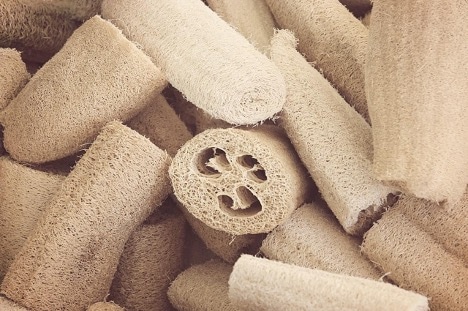College represents a time for growth and self-discovery—a time to start acting on your dreams and beginning an autonomous life path. First quest? Skincare. Common skin problems such as dryness, excessive oiliness, and acne have long been attributed to puberty’s hormonal imbalances. But now you’re a young adult, the acne keeps coming, and there’s a job interview (and a date) on the horizon for the weekend. Freshly out on your own, you need to prioritize all your purchases based on the new constraints of your budget. Though discount skincare brands save you money and sticking to the product selections your parents made for you years ago may seem easy, the consequences of either may be contributing to your frustrating skin imperfections and conditions. Although fresh, radiant skin doesn’t magically appear overnight, there are steps you can take to noticeably improve your skin’s health over time. The older you get, the harder it is to learn a new habit, so start today. Choose a single actionable tip and commit to working it into your routine so you can start seeing the benefits in action. It may be switching to a cleanser designed for your skin type or remembering to apply daily sunscreen—just pick a supportive skincare step and start somewhere. Once you master that step, move on to the next. Take your time and observe both adverse reactions and positive results. You’ll notice decreased breakouts, proper hydration, and a healthy glow if you start making meaningful changes to your skincare routine now.
Skin Type Crash Course
We typically categorize skin into a few different types. Skincare professionals formulate products to provide optimal results based on these categories’ properties.
Dry skin tends to be pale but red with blotchiness in some areas. Pores are small, there’s little elasticity, and cracks, itchiness, and flaking are common. Oily skin tends to have large pores, a shiny aesthetic, can feel heavy, and is prone to clogs and acne. Sensitive skin tends to react intensely and unpredictably to many conventional compounds and responds best to high-quality natural ingredients applied with a light touch.
“Normal” skin sits in the middle of most of these spectrums. Despite its name, normal is a rare skin type that doesn’t require much special care and suffers minimal skin problems. A basic skin hygiene practice will generally provide the best starting point to help you maintain skin health. Most common is combination skin, representing a mixed composition of dry and oily skin. T-section oiliness (brow, nose, chin) is particularly common for people with this skin type with acne problems often localized to these areas.
Despite the college-living limits of your budget, it’s worth the investment to select quality products when it comes to skincare. Synthetics, fillers, and additives can cause irritation and other adverse reactions. Rather than getting an entire skincare aisle for your bathroom, start with quality basics: cleanser, moisturizer, and sunscreen.
Basics to Healthy Skin in College
Turns out that tight feeling after a good facial scrub isn’t ideal: this sensation indicates you’ve “over-cleansed” or scrubbed too hard. Instead of getting fresh and clean, you’ve ripped the skin and stripped away too much moisture. Over time, tiny rips work against a youthful appearance and may lead to dark spots, cracks, and wrinkles. Your product choice and application should prioritize being gentle to your skin, and you should feel refreshed after a wash. Start by looking for something designed for your skin type.
Benzoyl peroxide and salicylic acid are common acne fighters but act as band-aids to underlying problems. The benefits (clearer skin) are contingent upon continual use, while the true causes (nutrition, product choice, and other habits) go unchallenged. Frequent use leads to dryness, so you end up needing a moisture treatment to supplement the effects of these products.
Moisture and sunscreen are each available in oil-free creams. Moisturizers prevent dryness, cracks, and itchiness and delay wrinkles. They replenish some of the moisture stripped away during cleansing and help your skin retain the moisture it already has. Proper skin moisture depends on both internal and external moisture management; drinking water is just as crucial to skin moisture as topical products.
Sunscreen is annoying to apply daily but protective, and this skincare staple cannot go ignored. Despite tanning’s popularity, even slight pigmentation indicates skin damage. Sunburns are painful and may trigger melanin reactions, causing your skin to darken unevenly as it heals. Some moisturizers have SPF in them, and there are oil-free options that are lighter and provide an ideal solution for oily skin types. Your behavior now has long-term skin and health effects, so take the time to ward off aging, sunburn, and skin cancer.
Introduce products one at a time and pay attention to how your skin reacts. There’s no “getting used to” a skincare product: any redness, tinging, itchiness, burning, or discomfort indicates incompatibility. Stop using the product and try something new—period. Even the most popular skincare brand or item won’t work for everyone.
Underlying Roots of Acne in College Students
The college lifestyle has multiple pitfalls that contribute to problem skin. Bringing awareness to these underlying contributing factors may give you the power to make better choices for skin health.
Nutrition: For many, college is the first time they’re in complete dietary control. Surrounded by pizza, snacks, fast food, parties, alcohol, sweets, and no parents to enforce otherwise, college years are often marked by excessive low-nutrient food consumption. Too much fried food and sweets can cause breakouts.
Poor skincare habits: Juggling a fully autonomous life is hard, and by the end of the day, you just want to crash. Failing to wash your face after a long day is a mistake – especially if you’re wearing makeup. Makeup is a mask that covers the pores, disrupting their respiration. When pores get clogged, pimples rise to the surface. Cleansing each night washes away the day’s impurities, preventing you from smashing them into your face during sleep.
Skipping moisture and sunscreen: You don’t want your skin to feel like a raisin or a slab of leather, and you don’t want to develop sun spots or melanoma. Our skin needs moisture to perform its protective function properly. Keep a supply in your room, your car, and even your bag if you must, and don’t skip out on protecting your skin.
It’s easy to put off until tomorrow what we can do today. We often assume our skin can wait until we get more financial independence or a bigger paycheck. In truth, skincare is an investment in your future. Your actions (or inaction) today will decide your skin’s fate. Incorporating health-positive skincare habits is easy regardless of how much you plan to invest in the process at the start. Start with careful product selection based on your skin type. Invest in the best quality products you can continually afford. Slowly implement new habits, giving each addition time to take root in your daily routine. As a bonus, this process will keep you from introducing multiple products simultaneously, potentially confusing your evaluation process as you find the right products for you. Try out multiple products, routines, and combinations to find a regimen that works for you. You want your skin to feel hydrated, look clear, and glow with radiance. Critique each product based on how it makes you feel. Watch for signs of irritation in both new and old products and be sure to toss products once they reach expiration. In college and long after you graduate, healthy skin starts with a few simple daily care choices.
The latest trends in neck tightening, the neck lift procedure with plasma fibroblast is a revolutionary technique for lifting up Read more
This is the age of anxiety, no doubt. People are ready to blow off their lids in an instant. This Read more
Want to look sensuous? The first thing that comes to our mind is to show skin. You begin searching for Read more
In the quest to appear our best selves, we often pick up certain habits that sabotage our beauty goals along Read more
April Klazema
April is based in the Netherlands, and writes across a broad range of beauty, lifestyle, and childcare topics.













